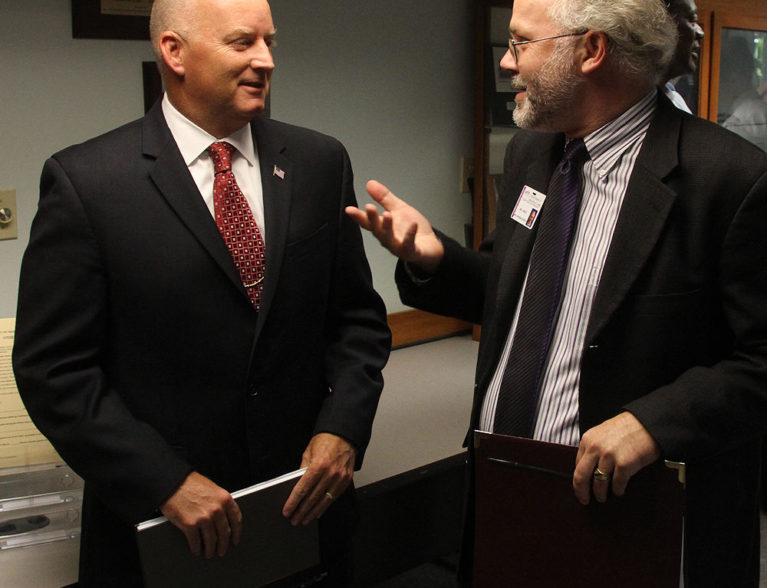
INDIAN RIVER COUNTY — Dr. Mark Rendell, Indian River County Schools Superintendent-to-be won’t officially take the post until July 1 but already he is meeting with civic groups to introduce himself and advocate for the district and his contract begins June 1 in order to smooth the transition between his predecessor Fran Adams, who retires at the end of June, and him.
Wednesday, he spoke to the Taxpayers’ Association of Indian River County at a luncheon at Vero Beach Country Club about what the community can expect from him, once on the job.
Rendell, who has frequently characterized himself as a hands-on kind of guy, plans to be in the schools a lot finding out from principals, teachers and kids what the District can do to improve the students’ likelihood of success.
He sees giving each school a report card of sorts — rating them in numerous categories to create an in depth profile — as the best way to tell how to help them improve. The report cards will be separate from the grades given by the state, which he believes can sometimes be misleading.
“We have to measure right here in Indian River County because what gets measured gets done,” he told the Taxpayers’ Association.
As superintendent, he’ll look at each school’s student and teacher attendance, suspension rates, who’s in technical education programs and who’s in college-prep courses, the percentage of kids reading at grade level, and other indicators to rate a school.
“I don’t want to rely on the state grades because I believe that grading system is flawed,” he said. “We have A schools that need work and B schools that are more successful in some ways.”
Rendell told the taxpayers group that in his mind only two types of employees should work for the school system: “those who teach and those who support those who teach.”
He questioned the wisdom of trying to make all students college-ready for a liberal arts education, saying that he wasn’t “sure everyone benefits from reading Othello or other Shakespearian plays.”
“Not all of our kids are going to a four-year university so the challenge is how to teach them to problem solve, work on a team, have good communication skills and show up on time,” he said.
The current wisdom is that high school graduates should be exposed to enough creativity, communication techniques, collaboration and critical thinking to incorporate the “four Cs” into their own lives.
“But how can we make sure they’ve done that? What is the best vehicle for finding out?” he asked the taxpayers group.
Rendell praised Adams’ Moonshot Moment initiative to get 90 percent of third graders reading on grade level by 2018.
But he wondered aloud if the goal should have been higher: “Why not 100 percent?” he asked.
Reading on grade level is so important in the third grade because before that students are reading to learn reading, he explained. But by third grade they are reading to learn.
“Research shows us that a student not reading well in the third grade probably won’t graduate,” he said.
In three weeks, said Rendell, he’ll begin meeting with principals at their schools.
“I want to learn if they’re doing what’s on paper that they’re told to do and if it’s working,” he told the taxpayers. “And, if it’s not working I want to collaborate with them to see how to make things work better.”
At the end of the luncheon, he said he was excited to get to work.



